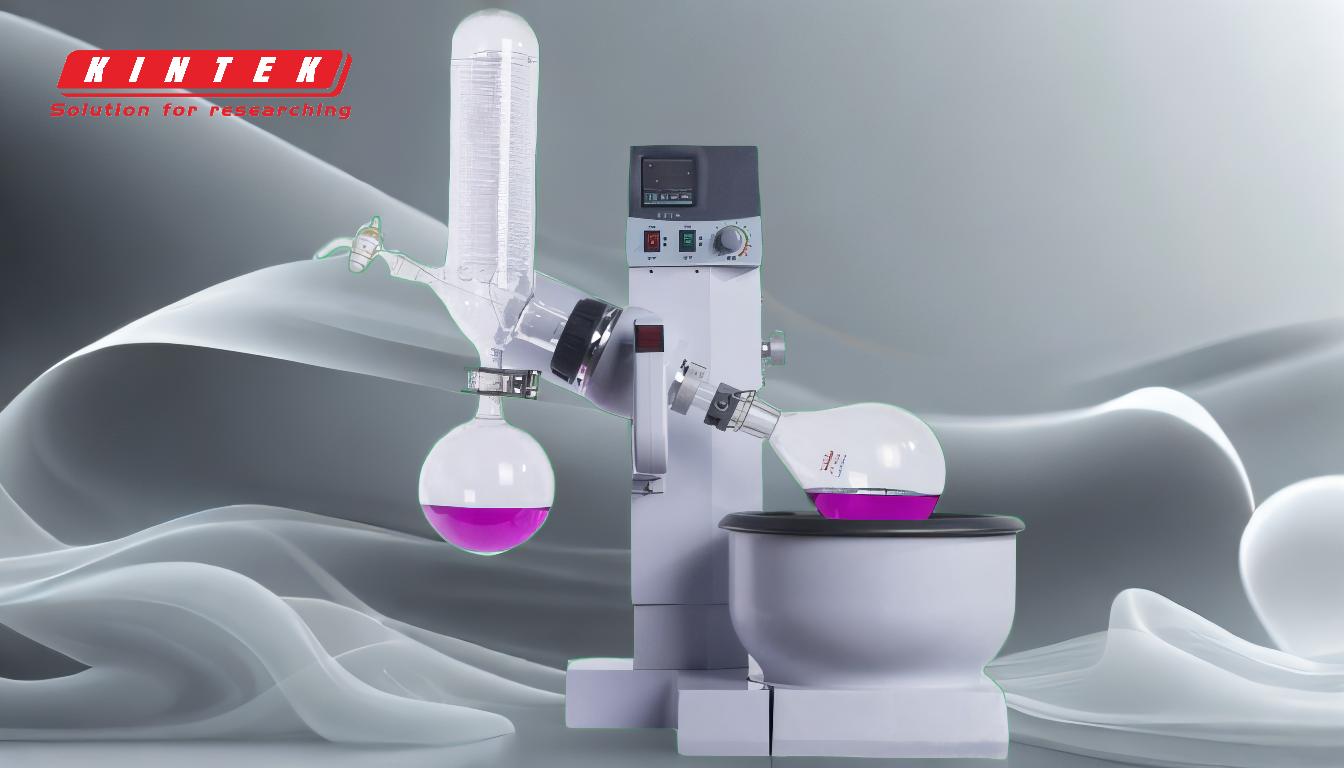A rotary evaporator, commonly referred to as a rotavap or rotovap, is indeed an instrument. It is a specialized piece of laboratory equipment designed for the efficient and gentle removal of solvents from samples through evaporation under reduced pressure. This instrument is widely used in chemistry, biology, and pharmaceutical research for processes such as distillation, purification, and concentration of liquid samples. The rotary evaporator operates by rotating a flask containing the sample in a heated water bath, which increases the surface area of the liquid and enhances evaporation. The solvent vapor is then condensed and collected, leaving behind a concentrated compound. Its design and functionality make it an essential tool in various scientific applications.
Key Points Explained:

-
Definition of a Rotary Evaporator:
- A rotary evaporator is a laboratory instrument used for the evaporation of solvents from samples. It operates under reduced pressure and utilizes rotation to increase the surface area of the liquid, thereby enhancing the rate of evaporation.
-
Primary Function:
- The main purpose of a rotary evaporator is to separate and concentrate compounds by removing solvents. This is achieved through a combination of reduced pressure, controlled heating, and rotation, which allows for efficient and gentle solvent removal.
-
Key Components:
- Evaporation Flask: Holds the sample and is rotated to increase the surface area of the liquid.
- Water Bath: Heats the sample to facilitate evaporation.
- Vacuum Pump: Reduces the pressure within the system, lowering the boiling point of the solvent.
- Condenser: Cools the solvent vapor, causing it to condense and be collected in a receiving flask.
- Receiving Flask: Collects the condensed solvent.
-
Operational Mechanism:
- The sample is placed in the evaporation flask, which is then rotated in a heated water bath. The rotation creates a thin film of liquid on the interior surface of the flask, increasing the evaporation surface area. The reduced pressure from the vacuum pump allows the solvent to boil at a lower temperature, and the vapor is condensed and collected.
-
Applications:
- Chemistry: Used for solvent removal, distillation, and purification of chemical compounds.
- Biology: Employed in the concentration of biological samples and extraction of compounds.
- Pharmaceutical Research: Utilized in drug development and purification processes.
-
Advantages:
- Efficiency: The combination of reduced pressure and rotation allows for rapid and efficient solvent removal.
- Gentle Processing: The low-temperature operation preserves the integrity of heat-sensitive compounds.
- Versatility: Suitable for a wide range of solvents and sample types.
-
Considerations for Purchasers:
- Capacity: Choose a model with an appropriate flask size for your sample volumes.
- Vacuum System: Ensure the vacuum pump is compatible with the solvents used.
- Temperature Control: Look for precise temperature control to handle sensitive samples.
- Safety Features: Consider models with safety features such as automatic shut-off and over-temperature protection.
In summary, a rotary evaporator is a sophisticated laboratory instrument designed for the efficient and gentle removal of solvents from samples. Its unique combination of reduced pressure, controlled heating, and rotation makes it an indispensable tool in various scientific fields. When selecting a rotary evaporator, it is important to consider factors such as capacity, vacuum system compatibility, temperature control, and safety features to ensure it meets the specific needs of your laboratory.
Summary Table:
| Aspect | Details |
|---|---|
| Definition | A lab instrument for solvent evaporation under reduced pressure. |
| Primary Function | Separates and concentrates compounds by removing solvents. |
| Key Components | Evaporation flask, water bath, vacuum pump, condenser, receiving flask. |
| Applications | Chemistry, biology, pharmaceutical research. |
| Advantages | Efficiency, gentle processing, versatility. |
| Considerations | Capacity, vacuum system compatibility, temperature control, safety features. |
Need a rotary evaporator for your lab? Contact us today to find the perfect solution!












